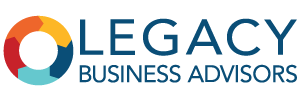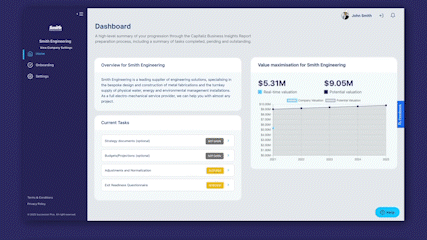Tanya DiSalvo is president of the company started by her grandfather in 1953. Criterion Tool & Die is a precision manufacturing company for the “no failure” industries specializing in Medical Devices, Aerospace, Defense and Photonics. The parts they make are generally tiny and with very tight tolerances for critical applications. Leading a team of 34 employees, Tanya is the third-generation owner of the family business, having taken ownership from her parents in 2010.
Why did you decide to enter the family business and take on a leadership role?
I didn’t want to get involved! I worked for my dad in high school, and he always had precision in his mind. I was putting labels on a mailing and didn’t do it straight enough – so he took my car keys away, wouldn’t pay me and then grounded me! After I graduated from college and the company had expanded, my dad was hiring a salesperson and ran an ad in the paper. I had majored in Sports Marketing and was working but the traveling was getting old, so I sent in my resume! I figured if I’m going to work hard, it might as well be for my own family’s business – and my first passion is sales.
What challenges have you found as a woman in a business traditionally run by men?
My competitive nature has been super helpful. The industry has come a long way. I’m currently on a board for The PMPA, (Precision Machine Products Association) and the population of the membership is so much different now. Definitely more women involved in manufacturing. It’s taken a long time to earn the right to be at the table. I’m pleased to have paved the way for some of the gals in the industry today. I like being helpful to others who may not have had such a great dad or the strong upbringing I had.
Why did you begin working with Legacy Business Advisors?
My accountant pitched the idea when she asked, “Where do you get outside input on your business?” I really didn’t, besides some strategic planning through COSE, so I got involved with The Alternative Board (TAB) where I could learn from other professionals outside my social circle. Then I started working with Legacy Business Advisors and they introduced me to the Capitaliz digital platform to help best position the company for a successful exit, but also to run the organization today in a way that maximizes our value.
What’s the greatest benefit you’ve found with the Capitaliz program?
During the transition with my dad, I had been pushing him to get everything about the business documented on paper, with succession planning, a will, and an exit strategy. It was hard to talk about my dad “getting hit by a beer truck” and not crying. Back then, we didn’t have a great system to work through a successful transition. Addressing the needs of the business today, the Capitaliz program helps de-risk the business to make sure things are in place in case I get hit by the beer truck! The process brings up a lot of “what if” questions and can get complicated. The Legacy team helps me break down a massive project into bite-sized tasks. They have held my hand and walked me through it all, keeping me accountable.
What’s helpful about the Capitaliz business valuation report from Legacy Business Advisors?
The program gives you a letter grade on your exit readiness, credit situation, financial metrics, strategic growth and other areas. You get a benchmark and a dashboard. It’s easy to see areas to improve, and areas we have improved. All of those are important, because when you’re running and gunning all day long, it’s hard to carve out time to work on a business game plan. Capitaliz gives me thoughtful activities to do and when it gets hard, I have someone to talk to. As a woman and a mom, it’s hard for me to say I don’t know something. To admit that to a tableful of people takes some trust. I’ve developed that trust with Mark and his Legacy team.
How does the Legacy team keep you accountable to your plan?
We have regular communication every two week. Zoom makes it easy. We go over a couple bullet points and I get a dashboard and a checklist so I see we’re making progress. If did this on my own, I’d only pick the fun things and not do the hard ones! But you need to start with the hard stuff to build the foundation. All this tees us up for succession planning and frees me up to do other things I want to do.
Why is it important to work with experts in exit planning?
If I’m the pilot flying the plane, I shouldn’t be serving the drinks. I need to be looking ahead to see what’s coming. I could spend a lot of time floundering on things I may think are important, but I’ve never sold a business before! The way you get better at things is practice – and how many shots do you have at selling your business? If someone has a “do this in a box” process, I like that. I get my own team involved in some of this because these are good business practices, not because I’m about to sell the business. It makes us a better team and organization, to serve our clients better and recruit and maintain good people.
Any advice you would offer other small business owners?
It doesn’t matter where you are in the process, whether you think it’s time to develop an exit strategy or just build the best organization you currently have – it’s the execution, the little steps every week. If we do one thing a week, we’ve done 52 things by the end of the year to make this company better. I think it’s awesome to get that input and feedback from Legacy Business Advisors – and all at a reasonable investment of time and money.



Recent Comments